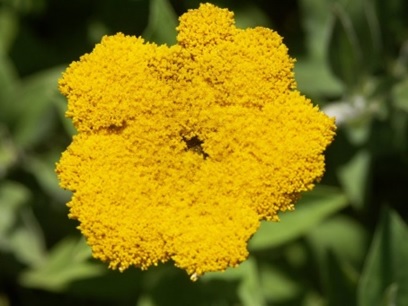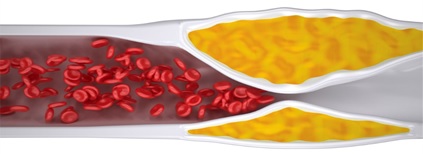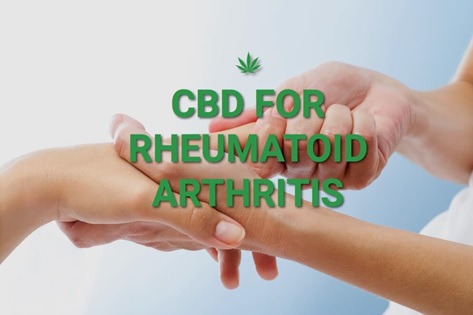Cannabis and Breast Cancer

Cannabis and Breast Cancer. How can medicinal cannabis contribute to the treatment of breast cancer?
Medicinal cannabis against breast cancer.
At present it is common to treat people suffering from cancer with medicinal cannabis. It has been shown that therapeutic cannabis is a good palliative of the side effects caused by chemotherapy, in particular to ease nausea and vomiting on top of improving the general health status.
Furthermore, and as already discussed in the general chapter dealing with cancer, treatment with cannabinoids may increase the efficacy of radiotherapy and chemotherapy as it has been suggested that cannabinoids have antitumor properties through mechanisms that include the induction of apoptosis (programmed cell death), the inhibition of cellular proliferation, adhesion, migration and invasion, all needed to produce metastasis, as well as the inhibition of angiogenesis (generation of new blood vessels to feed the tumor).

The US National Cancer Institute currently includes cannabinoids among alternative and complementary therapies for the treatment of cancer.
Several studies on Cannabis and Breast Cancer have shown that CBD interacts with signal transduction cascades and transcriptional expression factors that may inhibit the proliferation and migration of tumor cells. The scientific findings from these studies fostered a preclinical study that showed the beneficial properties of CBD for the treatment of cancer.
A study published in 2019 described part of the mechanism of action of cannabinoids in breast cancer. It was shown that CB1 receptors expressed moderately in tumor cells while the expression of CB2 receptors was much higher. Moreover, there was correlation between the aggressiveness of the tumor and the expression level of these receptors.
Several studies on Cannabis and Breast Cancer using animal models have shown that, on top of the already mentioned properties on cell division, angiogenesis, apoptosis, etc., the induction of apoptosis during breast cancer is mediated by the inhibition of “pro-oncogenic” signals within the tumor cells. The effects on these cells, the reduction of angiogenesis and the inhibition of metastasis, were observed both in estrogen-susceptible tumors and in estrogen-resistant tumors. Several proteins involved in these functions, such as COX-2 or protein kinase B, have been characterized in tumor cells from human samples.
In addition, other studies have also shown that some estrogen receptor modulation drugs (involved in breast tumor resistance to hormones) such as Tamoxifen, are able to bind to cannabinoid receptors.
Tamoxifen is an estrogen-blocking drug prescribed for a 5 year-period after surgery and chemotherapy to treat a common subtype of breast cancer that reduces the chances of metastasis. This drug partly acts by modulating the endocannabinoid system receptors, that is, CB1 and CB2 receptors.
Additional studies have shown that the administration of THC in rats significantly decreases benign tumor formation in mammary glands and other organs, reinforcing the positive effects of cannabinoids (CBD, THC and others). Many scientists conclude that the antitumor effects of cannabinoids would be partly mediated by their anti-inflammatory effect, their ability to induce apoptosis and the inhibition of angiogenesis and metastasis.
Recently, a study regarding apoptosis in tumor cells from breast cancer showed that the mechanism of action was not mediated by CB1 and CB2 receptors, suggesting that additional studies are still needed to elucidate the actual mechanism of action.
Other studies using synthetic cannabinoids have also shown that some of the effects on growth and metastasis were mediated by a receptor known as CXCR4. This receptor is associated with immune system cells and even with HIV receptors, but it also modulates motility in hematopoietic stem cells (blood cells).
CBD has also been reported to inhibit the expression of a protein known as Id-1. This protein is involved in the regulation of metastasis in the most aggressive types of breast cancer. CBD also increases the expression of another protein known as Id-2. The latter is associated with cellular differentiation.
CBD has also been shown to alter the active state of several proteins related to the cell cycle, apoptosis and cellular differentiation (such as AKT, ERK, signaling pathways mediated by mTOR, etc). It was shown that different doses of Anandamide, a cannabinoid produced by our body, were able to inhibit the in vitro proliferation of cancer cells (breast cancer) in a potent, selective and dose-dependent manner. This anti-proliferative effect was not due to toxicity or the induction of apoptosis but to a reduction of cells in the S phase of the cell cycle (this is the phase of the cell cycle in which DNA is replicated and it is essential to successful cell division).

It was shown that anandamide arrested cell proliferation partly due to the inhibition of the activity of prolactin (an hormone related to this pathology) upon suppressing the levels of the prolactin receptor by a mechanism mediated through the cannabinoid receptor CB1.

Another study analyzed the antitumor role of CBD in aggressive breast cancer, including the so-called triple negative breast cancer (TNBC, triple negative because patients have tested negative for the estrogen (ER-), progesterone (PR-) and HER2/neu (HER2-) receptors, which complicates and limits the treatment of choice). It was shown that CBD inhibited the cellular proliferation induced by the epidermal growth factor (EGF), suggesting that CBD inhibited the pathways activated by EGF that are associated with cell division and proliferation (pathways mediated by proteins such as EGFR, ERK, AKT and NF-kB).
In addition, it was proven that CBD inhibited tumor growth and metastasis in mice and it also inhibited the recruitment of tumor-associated macrophages (immune system cells that remove and destroy infected or defective cells and that are partly responsible for inflammation) as well as the production of recruitment molecules.

Another study that evaluated different cannabinoids (including THC and CBD) observed that CBD constitutes the most potent cannabinoid inhibiting the growth of cancer cells, although all cannabinoids were able to inhibit cell growth to a certain extent. Once more, it was concluded that such effect was due to their pro-apoptotic activity through the activation of the endocannabinoid system. Hence, CBD is the best antineoplastic and pro-apoptotic cannabinoid.
In summary: CBD or cannabidiol is a compound that has beneficial effects during therapy against breast cancer due to its anti-tumor properties, which are triggered through the interaction with different factors that induce cancer.
Analyzed and discussed by Paula Pifarré, PhD. Cannabity Healthcare Scientific Collaborator.
References
- Kiskova T et al, 2019. Int J. Mol. Sci
- 2-Nasser MW et al, 2011. PloSOne
- McAllister D et al, 2011. Breast Cancer Res. Treat.
- Shrivastava S et al, 2011. Mol. Can. Ther.
- https://www.ncbi.nlm.nih.gov/pmc/articles/PMC4387115/
- https://www.ncbi.nlm.nih.gov/pmc/articles/PMC20983/
- https://www.ncbi.nlm.nih.gov/pubmed/27633508
- https://www.ncbi.nlm.nih.gov/pubmed/18025276
- https://www.ncbi.nlm.nih.gov/pmc/articles/PMC3579246/
- https://www.ncbi.nlm.nih.gov/pubmed/16728591
- https://www.ncbi.nlm.nih.gov/pubmed/27530354
- https://www.ncbi.nlm.nih.gov/pubmed/16728591
- https://www.cannabisreports.com/cannabis-studies/cannabis-for-breast-cancer
- https://www.projectcbd.org/es/condition/16/C%C3%A1ncer





Responses